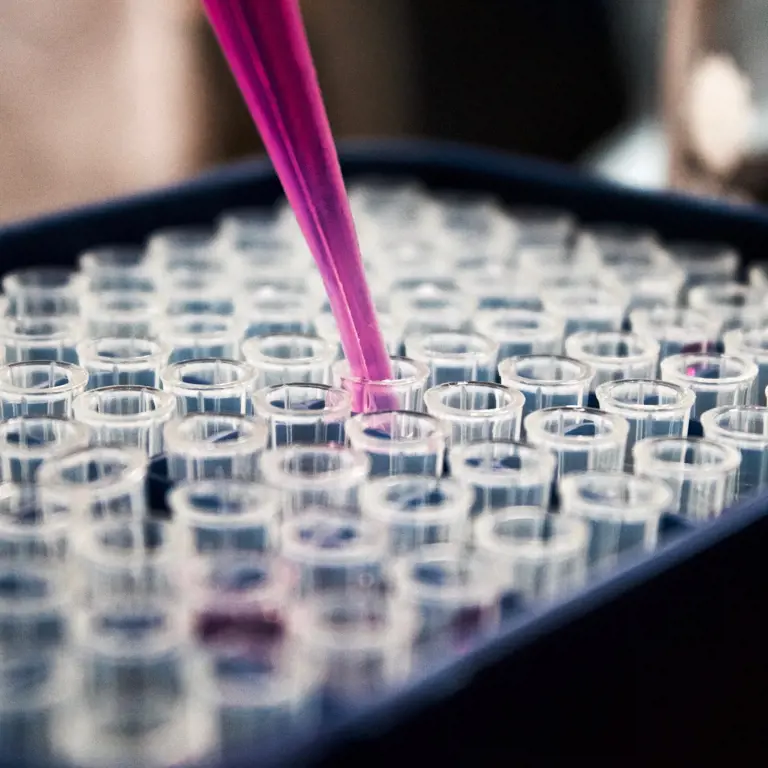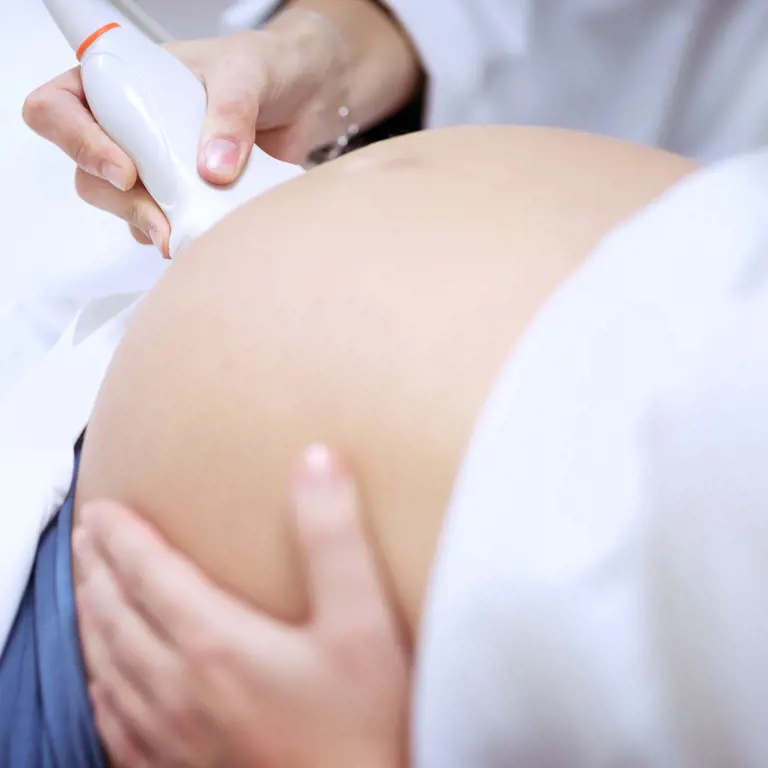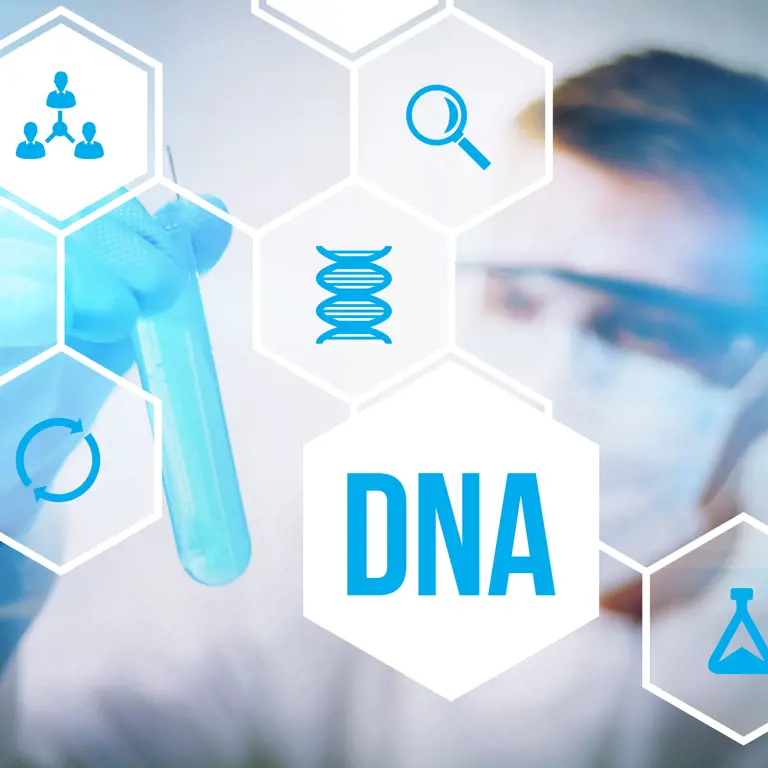- Getting started
- Donor screeningDonor screening
- Services
- Ordering
- Being donor-conceivedBeing donor-conceived
- ResourcesResources
Languages
Languages

More than 400 genetic conditions covered
The diseases we screen for with GeneXmatch are included for two reasons: either the disease is one of the most common genetically inheritable diseases. Or the disease is particularly severe and debilitating for the child.
GeneXmatch covers all diseases in the State of Israel's screening recommendations for Jewish populations.
Blindness
Deafness
Fragile X syndrome
Hunter Syndrome
Sjögren-Larsson
Spielmeyer-Vogt
Muscular dystrophies
Phenylketonuria (Følling, PKU)
Krabbe disease
Zellweger spectrum disease
Epidermolysis bullosa
Fabry disease
Joubert
We screen all our donors carefully before they're allowed to donate. Our donor screening includes a full physical examination, a medical history review going back three generations and genetic screening for the most commonly occurring genetic diseases.
Our donor screening adheres to all national guidelines and EU requirements. You can learn more about the process here.
However, our donor screening cannot detect all types of disease. Some conditions are caused by genetic mutations carried by the mother, others occur when the genes of the man and the woman are combined to create a child. That's why we recommend GeneXmatch to further minimise the risk of your child inheriting a genetic disease.

GeneXmatch incorporates the latest advances in medical screening.
As expecting parents, we're used to ultrasounds and blood tests. These screening tools enable the early discovery of serious conditions in our children. But instead of just discovering disease early so that it might be treated, GeneXmatch makes it possible to prevent disease altogether.
Genetically inheritable diseases are caused by mutations in our genes that we pass on to our children.
Autosomal recessive diseases
In the case of autosomal recessive diseases, a child inherits the illness from his or her biological parents because both of them have a mutation in the same gene.
Usually, the adults don't suffer any symptoms of the disease themselves. But seeing as they are carriers of the disease, there is a 25% risk that their child will be affected.
GeneXmatch screens for 392 autosomal recessive genetic conditions.
X-linked diseases
X-linked diseases are caused by mutations in the genes on the X chromosome. Most often, women don't experience any symptoms of the disease themselves.
If the prospective mother is a carrier of an X-linked disease, there is a 50% risk that her child will be affected if it's a boy. The risk is the same no matter which donor she chooses.
GeneXmatch screens for 11 X-linked genetic conditions.

Guidance
If your GeneXmatch test result finds that you're a carrier of an X-linked disease, we invite you to a genetic counselling session. It's an overwhelming message and we want to make sure you have all the information to handle your new situation.
During the consultation, our Medical Team will explain your test result and advise you on how to best proceed wit your fertility journey.
GeneXmatch is a game-changer. We're used to prenatal and newborn screening. But GeneXmatch introduces preconception screening. Basically, that means we've moved from treatment to prevention of a wide range of serious diseases.

Our expertise
Our medical team developed GeneXmatch to help parents and their future children.
As a company, we strive to help bring healthy babies into the world. Knowing that our donor screening only accounts for half of a child’s genetic makeup, we knew we needed to do more.
Our Medical Team heads up the development of GeneXmatch. They’re also in charge of approving all donors before they are allowed to donate.
Feel free to contact us, if you can't find an answer to your question here.
Yes, it's relevant for all women. All human beings are carriers of one or more recessive diseases. Meaning that if they choose to have a child with someone who has the same gene mutation as themselves, there is a 25% risk that their child will be sick. Usually, people have no knowledge of being a carrier, because carriers of recessive diseases are healthy.
On average, 1 in 100 couples are at risk of passing on a recessive disease to their child (=1%). We know this from extensive population studies performed in relation to genetically inheritable diseases.
In addition to that, a woman’s risk of being a carrier of an X-linked diseases is up to 1 in 200 (0,5%).
After taking a GeneXmatch, the risk of having a child with one of the diseases included in the GeneXmatch is almost 0%.
You'll receive your test result about 6 weeks after we've received your saliva sample.
A GeneXmatch costs 995 EUR. The price covers the lab work involved to produce your test as well as our time analysing the result. If the test shows that you have an X-linked disease, the price covers a genetic consultation as well.
It takes about 6 weeks to get the results once we've received your saliva sample. So there shouldn't be any delay to your fertility treatment.
No, the GeneXmatch test includes a fixed panel of 400+ conditions carefully selected by our medical team. But we offer custom screening tests such as known carrier testing. Contact us to learn more.
GeneXmatch is based on a sample of your saliva. Once you've ordered your GeneXmatch, we send you a saliva kit. The kit includes detailed instructions on how to provide your sample.
No. GeneXmatch is a test determining whether your genes and those of your donor are a healthy match. That is, whether you share mutations in the same gene that would result in your child inheriting a genetic disease. The purpose of the test is not to map your genetic profile.
If your GeneXmatch finds a mutation in one of your X-linked genes, you'll get a report for that specific gene (as well as genetic counselling to help you understand your test result).